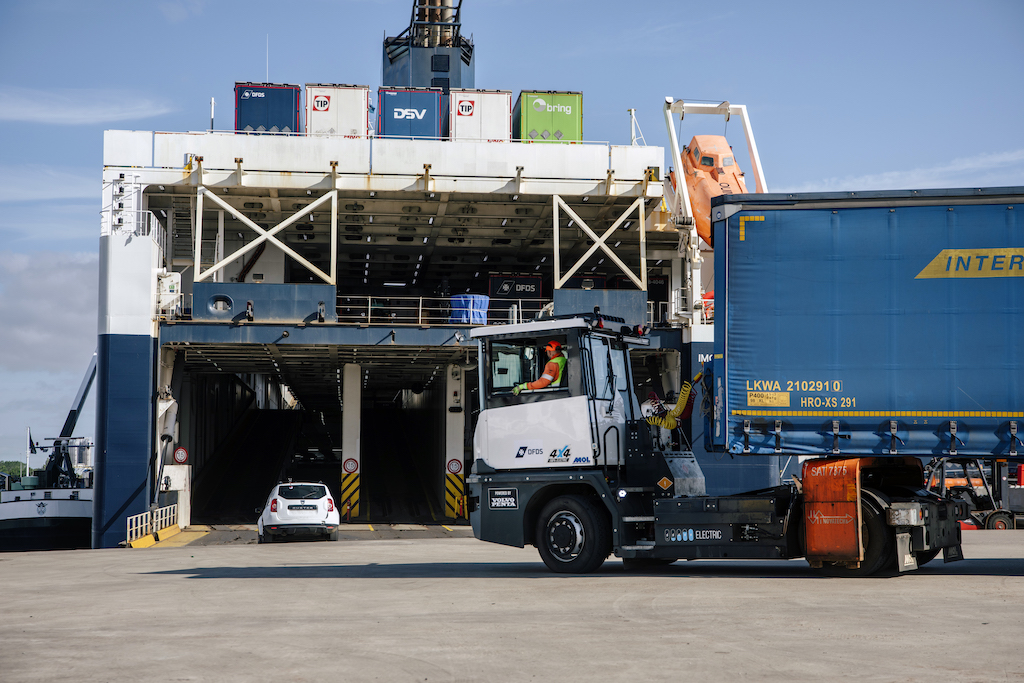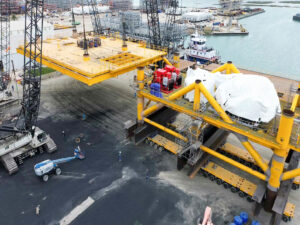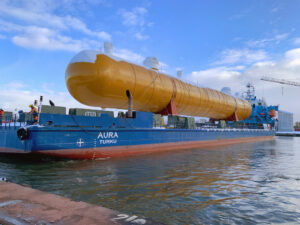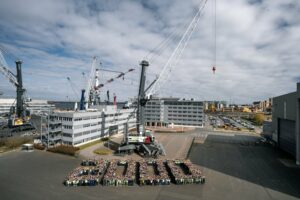In a groundbreaking collaboration, MOL and Volvo Penta have initiated trials for an innovative electric 4X4 RoRo tractor, the RME225, at DFDS’s facilities in the Port of Ghent. This joint effort aims to integrate a custom-built electric driveline, enabling customers to stay competitive and profitable during the energy transition. The project seeks to enhance material handling operations for fleet owners and terminal operators.
MOL, a leading manufacturer of heavy industry and port handling equipment, has partnered with Volvo Penta to test the fully electric RME225 RoRo tractor. The RME225 features a Volvo Penta driveline with three battery packs totaling 270 kWh of energy, an EPT802 gearbox, and two 200 kW propulsion motors. A separate 50 kW motor powers the hydraulic system and the fifth wheel. Designed for high productivity and performance, the RME225 aims to match the operational efficiency of its diesel counterparts while promoting sustainability.
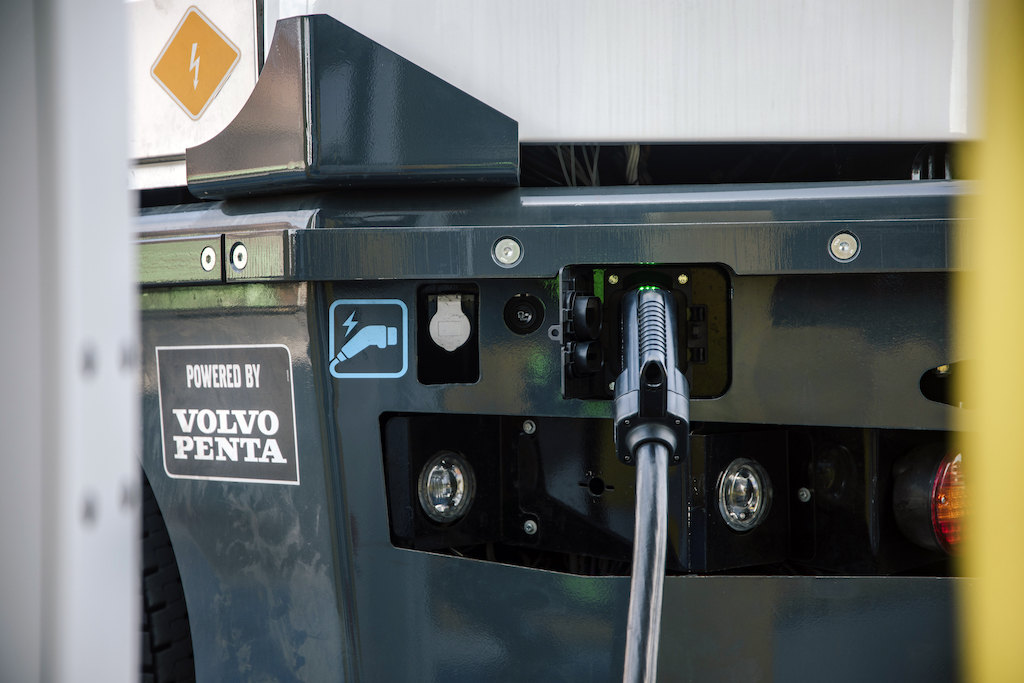
The trials are being conducted at the Port of Ghent, a key location for DFDS, one of Northern Europe’s largest shipping and logistics companies. DFDS is providing crucial support for the trials, including a dedicated operator and a monitoring space. This collaboration aligns with DFDS’s commitment to reducing its environmental impact, reflected in its recent purchase of 100 electric trucks from Volvo, in addition to the 125 heavy electric trucks previously acquired.
“The progress we’ve made with Volvo Penta in developing the electric 4×4 RME225 terminal tractor underscores our dedication to expanding our range of emission-free vehicles for heavy-duty port equipment,” stated Conrad Verplancke, sales engineer at MOL. “We are focused on ensuring its reliability, efficiency, and effectiveness in real-world operational scenarios.”
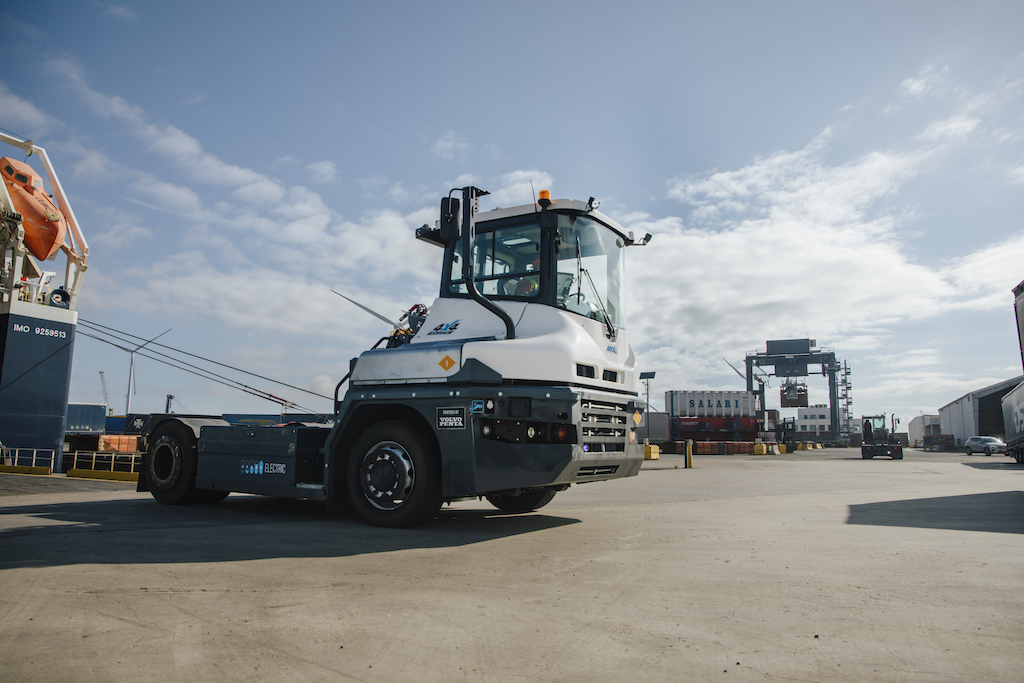
MOL is conducting extensive range tests on the RME225 to refine its performance and drivability. These tests are critical to ensuring the vehicle can handle heavy loads and operate efficiently under the demanding schedules typical of port operations. The goal is to address the unique challenges faced by port-based vehicles, enhancing their performance, range, and reliability.
“The benefits of electrification extend beyond the initial technology investment,” explained Jeroen Overvelde, area sales manager at Volvo Penta. “The electric tractor matches its diesel counterparts in performance, potentially offering higher acceleration rates and available torque. Success depends on delivering superior performance and optimizing total cost of ownership (TCO).”
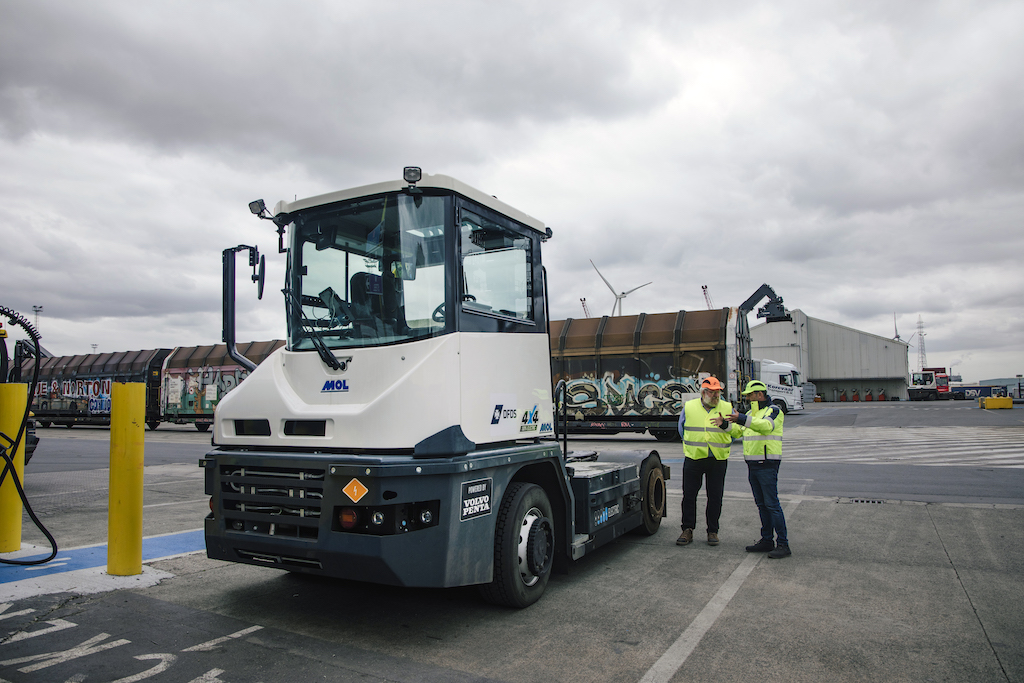
Electrifying the 4X4 RoRo tractor offers numerous advantages. It reduces tailpipe emissions, contributing to cleaner air quality, and lowers vibrations, creating a quieter and more pleasant working environment. This is particularly beneficial in confined spaces on and off container ships. “As the fleet owner and terminal operator at the Port of Ghent, we are pleased to support the trials and the development of the electric 4X4 RME225 RoRo tractor,” said Raf De Wit, Terminal Director at DFDS Ghent terminal. “This aligns with our efforts to decarbonize our land-based activities, improve the working environment, and enhance the efficiency of our port operations.”
The partnership between MOL, Volvo Penta, and DFDS at the Port of Ghent exemplifies a committed collaboration towards innovation amid the energy transition in the maritime and logistics sectors. This initiative highlights the companies’ dedication to reducing their greenhouse gas footprint and advancing sustainable transportation solutions globally.


